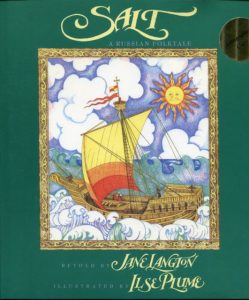 Ivan, the merchant’s third son, having patience and an eye for opportunity, barters the cargo of his ship for a princess and a fortune.
Ivan, the merchant’s third son, having patience and an eye for opportunity, barters the cargo of his ship for a princess and a fortune.
Russia
Materials from Russia
Nikolai, The Only Bear
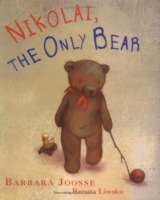
There are one hundred orphans at the Russian orphanage, but Nikolai is the only bear. He growls when he speaks and claws the air when he plays. “Play nice, Nikolai,” the keepers say. No one wants to take Nikolai home. Until one day, when a fur-faced man and a smooth-faced woman come to visit from America. They growl with him and play with him, and sing songs that make him feel soft-bearish. And when it’s time for them to go home, Nikolai knows that he has found the right family at last.
Georgia (Cultures Of The World)
The Absentminded Fellow
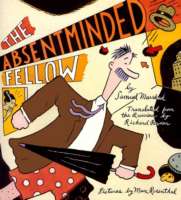
Leaping into a shirt and thrusting his arms into his pant legs, the Absentminded Fellow dashes out into the London streets, frantically hails a cab, rushes through the train station and right into an abandoned car. Three days later, to his surprise, he’s still in London…This droll character portrait will quickly have listeners chiming in on the chorus.
Holocaust
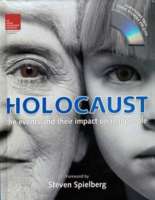
Explaining the complex political and social backdrop that allowed the Holocaust to occur, as well as its progression and aftermath, this comprehensive volume contains first-hand testimony from survivors and enables readers to appreciate the impact of the Holocaust on real people and the lives they and their families have rebuilt today.
I Remember

This series of biographical vignettes is narrated by Hannah, a lower-middle-class Jewish girl living in a small Russian town. Despite prejudice and political unrest in Russia and the crisis of World War I, Hannah remains optimistic and eager for the future–giving up new clothes for piano lessons, strengthening her relationship with her sister, and learning to face a world in turmoil. Based on the author’s own life, this is a fascinating personal account of a young girl’s transition into womanhood in the early twentieth century.
I Want To Live: The Diary Of A Young Girl In Stalin’s Russia
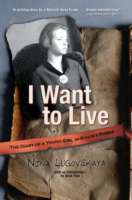
Recently unearthed in the archives of Stalin’s secret police, the NKVD, Nina Lugovskaya’s diary offers rare insight into the life of a teenage girl in Stalin’s Russia–when fear of arrest was a fact of daily life. Like Anne Frank, 13-year-old Nina is conscious of the extraordinary dangers around her and her family, yet she is preoccupied by ordinary teenage concerns: boys, parties, her appearance, who she wants to be when she grows up. As Nina records her most personal emotions and observations, her reflections shape a diary that is as much a portrait of her intense inner world as it is the Soviet outer one. Preserved here, these markings–the evidence used to convict Nina as a “counterrevolutionary”–offer today’s reader a fascinating perspective on the era in which she lived.
Out Of Line: Growing Up Soviet
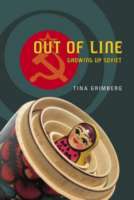
Although the Iron Curtain is gone, the memory of the high drama, tragedy, and comedy that was life in the Soviet Union remains. It meant endless lineups in the cold — lineups enlivened by poetry and paranoia. It meant family life lived in two small rooms, but a family life that was rich in love and laughter. It meant trying to escape all-seeing eyes, especially those of the old ladies in their babushkas who guarded every courtyard.
Tina Grimberg brings color and perception to a life we think of as gray, impersonal, and foreboding. She was born in Kiev and grew up feisty, bright, and funny in a tiny flat with her parents and her older sister. Her descriptions of life in that grand and beleaguered city are by turn hysterical and heartbreaking. When Tina turned fifteen, the government, desperate for foreign wheat, traded “undesireables” for food, and that meant that many Jewish families like Tina’s could leave. Until they could leave on the hair-raising journey that would eventually bring them to Indiana, she was publicly shamed and cut off, but she never lost her affectionate and clear-eyed view of her homeland. This brilliant collection of memories is an unforgettable look behind what was the Iron Curtain; at a way of life that was reality for millions of people in the twentieth century.
Laika
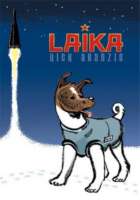
Laika was the abandoned puppy destined to become Earth’s first space traveler. This is her journey. Along with Laika, there is Korolev, once a political prisoner, now a driven engineer at the top of the Soviet space program, and Yelena, the lab technician responsible for Laika’s health and life. Abadzis gives life to a pivotal moment in modern history, casting light on the hidden moments of deep humanity behind history. This graphic novel is a blend of fact and fiction dealing with the first animal to be sent into space. He was on the Russian Sputnik 2 in November 1957. Laika would die on that trip.
Letters from Rifka

In letters to her cousin, a young Jewish girl chronicles her family’s flight from Russia in 1919 and her own experiences when she must be left in Belgium for a while when the others emigrate to America.

